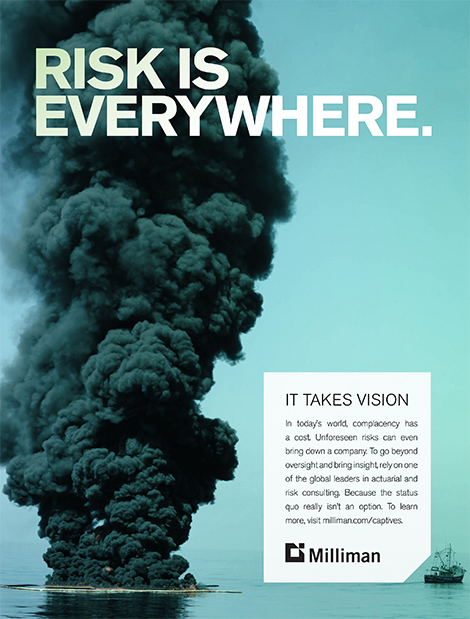Since its regulatory statute update in 2005, the state of Delaware has grown from a modest five captives to a staggering 608 regulated captive entities as of 30 July 2013.
Since its regulatory statute update in 2005, the state of Delaware has grown from a modest five captives to a staggering 608 regulated captive entities as of 30 July 2013.
In the words of Steve Kinion, director of the Bureau of Captive and Financial Insurance Products: “Delaware is the world’s fastest growing captive domicile. [It] has over 570 active captives and is the world’s 10th largest domicile and the 3rd largest US domicile. These captive insurers are in various types to include pure captives, series captives, risk retention groups, special purpose financial captives, and sponsored cell captives.”
Richard Klumpp, president and CEO of Wilmington Trust, who was involved in revising the Delaware Captive Insurance Statute in 2005, explains that since the redrafting of the legislation, the domicile has grown significantly.
But, Klumpp clarifies: “The base upon which that statute was built—affording flexible yet solid regulation, a strong public-private partnership, and ongoing support of the Delaware Captive Insurance Association—still exists today.”
According to Klumpp, Delaware’s insurance commissioner, Karen Weldin Stewart, is also a great help to the state, supporting the continued growth of the industry, including additions to staff.
“The Secretary of State’s office, long a proponent of the Delaware Advantage, continues to aid our marketing efforts. Plus, the DCIA continues to put on successful networking events and has recently increased its advertising budget to broaden our reach.”
Jeffrey Simpson, director of GF&M Law, believes that people interested in setting up a captive should consider Delaware as a potential domicile as it is an easy place to implement and operate “sophisticated transactional structures, whether captive insurance or otherwise”.
Simpson continues: “Anyone considering forming a captive should consider Delaware because of [its] cutting edge stature, accommodation and consultative regulators and deeply entrenched transactional infrastructure.”
The growth that Delaware has witnessed of late is far from an accident, adds Simpson and is the result of a long history of public-private partnership in which industry and government work together to create an environment that is attractive to business.
Doing it right
The tremendous growth in captive entities has been a great coup for the state. Klumpp explains that while the fast paced expansion hasn’t come without its hiccups, Delaware has managed to maintain its consultative and flexible approach.
“I think one would be hard pressed to find an industry veteran who would not agree with Vermont’s marketing slogan—‘the gold standard of captive domiciles’—as they have defined the requirement for a fair and reliable regulatory environment. At the same time, it’s clear that Delaware has plans to create an environment that’s also ideal for captives,” says Klumpp.
Simpson believes that Delaware’s successful growth can also be attributed to the state’s “excellent” regulatory staff and infrastructure.
“Delaware’s captive regulators will consider any reasonable proposal and … are open to new and creative designs. At the same time, they are not pushovers and are careful to protect policyholders and ensure that captives operate within certain limits.”
“Delaware regulators are also careful to consider the needs and conveniences of their captive citizens when refining or implementing policies and practices. They take pains to employ methods and set requirements that are reasonable, practical and helpful to their audience.”
For Kinion, innovation has been the key to the state’s continued success. He says: “I implemented a number of innovative measures not tried by other captive domiciles that ensured the responsible growth of Delaware’s captive domicile. One measure was recommending to Commissioner Stewart to allow the licensing of the world’s first series captive insurance company.”
“This pioneering activity allows individual series, either formed under a Delaware limited liability company or statutory trust, to become captive insurers. Until the captive bureau allowed this form of captive insurer, no other captive domicile had even considered doing so. In only three years Delaware has licensed 370 series units.”
When asked if growth has slowed down due to the influx of US states adopting captive laws, Klumpp declared that not to be the case in Delaware.
“Various states’ translations of the US Dodd -Frank Act have caused us to add new domiciles to our feasibility studies; but on balance, the market continues to grow. So, even in light of other domiciles arriving on the scene, we have not observed a decrease in the percentage of deals that come to Delaware.”
Satisfying the citizens
Though many different types of captive reside in Delaware, Klumpp explains that Wilmington Trust SP Services (the captive management arm of Wilmington Trust) does not tend to target a particular client because of its industry or type.
He says: “Rather than targeting a particular niche or domicile, we prefer to look at each prospective client as an individual, and put together a programme specific to that client.”
Simpson’s firm, GF&M Law, work with every type of captive that can be licensed in Delaware, from pure captives through to risk retention groups. Series captives, as mentioned by Kinion, are by far the most popular in the state.
He adds: “[GF&M Law] work with dozens of these structures and hundreds of series formed within them. We have helped sponsors form series captives for first party enterprise risks, medical stop-loss and workers compensation, to name a few.”
Kinion explains that while Delaware will always cater for nearly all types of captives, it has managed to expertly educate itself in a particular type.
He says: “Captives formed to reinsure the XXX and AXXX excess reserve for term and universal life insurance policies have become an area of expertise for Delaware. As Delaware’s chief captive regulator I believe that my captive bureau does a very good job in regulating these types of captives.”
“We are firm, but fair in our approach. I have been, and will continue to be, very vocal in my defense of captive insurers in general, and specifically these life reinsurance captives, before the National Association of Insurance Commissioners.”
Looking ahead, Kinion believes that the well-structured captive insurance industry has set the state up for the future. He explains that commissioner Stewart promised the citizens of Delaware a vibrant captive industry—and it seems she has managed to deliver on that promise.
“Today the captive insurance industry provides Delaware with revenue and economic opportunity, ” says Kinion, adding that the State of Delaware is a great choice of domicile for firms, as long as being an insurance company is of the utmost importance to them.
He says: “Captive insurers that satisfy the rules for risk transfer and have assuming risk as their core mission will find Delaware to be an advantageous domicile. Those promoters who wish to form captives whose primary mission is anything but being an insurance company, will find Delaware unwelcoming.”





